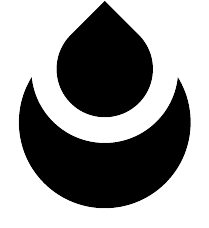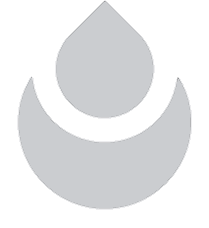At Art Of Mobility, our mission is to deliver effective treatments for lateral epicondylitis, commonly known as tennis elbow, in Mississauga & Toronto. We blend state-of-the-art methods with personalized care strategies to ease discomfort, enhance function, and support our clients in resuming their daily routines unhindered.
Understanding Lateral Epicondylitis
Lateral epicondylitis presents as pain and sensitivity on the outer side of the elbow, typically arising from excessive use of the forearm muscles and tendons. This repetitive stress causes inflammation and tiny tears in the tendons connecting to the lateral epicondyle, the exterior portion of the elbow.
Causes of Lateral Epicondylitis
Primary factors contributing to lateral epicondylitis include:
- Repeated wrist and arm movements.
- Overexertion of the forearm muscles.
- Tasks involving gripping or lifting.
Recognizing these triggers is crucial for preventing lateral epicondylitis and devising effective treatment plans.
Symptoms of Lateral Epicondylitis
Common signs include:
- Soreness and tenderness on the outer elbow.
- Weakened grip.
- Pain extending into the forearm.
Addressing these symptoms promptly can halt the condition’s progression and ensure a swifter recovery.
How We Assist in Managing Lateral Epicondylitis
At Art Of Mobility, we advocate for a comprehensive and individualized treatment approach, concentrating on symptom relief, recovery promotion, and prevention of future flare-ups.
Thorough Evaluation
Our assessment procedure encompasses a detailed evaluation to precisely gauge lateral epicondylitis and its severity. This may entail physical assessments and other diagnostic measures.
Crafted Treatment Plans
Recognizing the uniqueness of each lateral epicondylitis case, we formulate personalized treatment regimens tailored to your distinct requirements and objectives.
Physiotherapy: A Potent Defense
Physiotherapy is a cornerstone of our treatment strategy, aiming to diminish tendon irritation, fortify muscles, and enhance elbow function.
- Hands-on Therapy: We utilize methods like massage and joint mobilization to alleviate discomfort and boost mobility.
- Targeted Exercises: Our exercise schemes are crafted to bolster forearm muscles, enhance flexibility, and reduce tendon strain.
Ergonomic Tweaks and Lifestyle Pointers
To complement our interventions, we furnish advice on ergonomic adjustments and lifestyle modifications:
- Ergonomic Guidance: Pointers on adapting your work and daily routines to minimize elbow strain.
- Lifestyle Adjustments: Recommendations on activities and habits that aid recovery and deter recurrence.
Our Diverse Services
Art Of Mobility offers a comprehensive array of treatments for musculoskeletal ailments, with a dedicated team in Mississauga & Toronto dedicated to delivering tailored care to address your specific health needs.
Why Opt for Art Of Mobility?
Choosing Art Of Mobility means selecting a clinic committed to your recovery and well-being. Our proficiency in innovative treatments and client-focused care distinguishes us.
Our Dedication to You:
- Effective care from seasoned rehabilitation experts.
- A nurturing setting that fosters healing.
- Customized treatment plans designed for optimal outcomes.
Reclaim Your Life from Elbow Pain
If tennis elbow is impeding your daily life, connect with Art Of Mobility in Mississauga & Toronto. Our team is prepared to devise a personalized treatment scheme addressing your specific needs and objectives, guiding you toward a swift and efficient recovery. Let us assist you in regaining comfort and functionality in your daily pursuits.
Innovative Approaches for Common Elbow Ailments
|
|
Lateral Epicondylitis Treatment Mississauga & Toronto FAQs
Is Lateral Epicondylitis Preventable?
Preventing lateral epicondylitis involves making ergonomic adjustments and modifying activities that strain the forearm muscles. This includes taking regular breaks from repetitive tasks, using proper equipment and techniques during physical activities, and performing exercises to strengthen the forearm muscles. Early intervention upon noticing symptoms can also significantly reduce the risk of developing severe lateral epicondylitis.
What Is the Recovery Time for Lateral Epicondylitis?
The recovery duration from lateral epicondylitis varies depending on the condition’s severity and the individual’s response to treatment. Most individuals experience significant improvement within a few weeks to months of commencing treatment. However, complete recovery, especially for severe cases, might require a longer timeframe. Adhering to the prescribed treatment plan, including physiotherapy exercises and lifestyle modifications, is crucial for effective recovery.
Which Lifestyle Changes Can Aid in Managing Lateral Epicondylitis?
Implementing lifestyle changes is crucial in managing and preventing lateral epicondylitis. This involves practicing proper body mechanics during activities involving the arm and wrist. Making ergonomic adjustments at work and home to reduce forearm muscle strain is also beneficial. Additionally, engaging in regular stretching and strengthening exercises for the arm, wrist, and shoulder can enhance muscle endurance and flexibility, potentially lowering the risk of recurrence.
Can Lateral Epicondylitis Recur Following Treatment?
Yes, lateral epicondylitis can recur, especially if the initial causes, such as repetitive strain or overuse of the forearm muscles, are not adequately addressed. To minimize the risk of recurrence, it’s crucial to continue implementing ergonomic adjustments, lifestyle modifications, and forearm strengthening exercises even after symptoms have resolved. Regularly assessing and adjusting work and leisure activities to avoid excessive strain can also help prevent recurrence.
Our Clinic Locations:
Location 1:
Art of Mobility Physiotherapy Mississauga – Port Credit
125 Lakeshore Rd E #202, Mississauga, ON L5G 1E5, Canada
(647) 695-3995
Location 2:
Art of Mobility Physiotherapy Toronto – Trinity Bellwoods
115 Wolseley St, Toronto, ON M6J 1K1, Canada
(289) 460-2894

